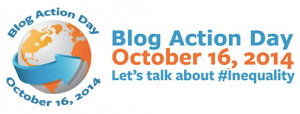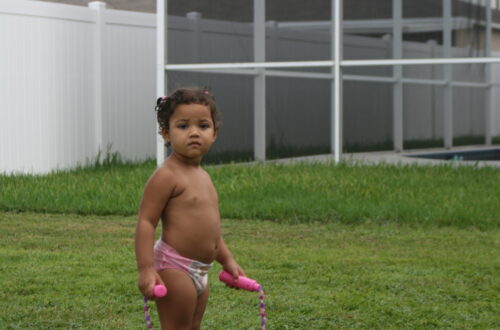
When I was young, men were not always interested in their offspring. Fathers leaving children was a common occurrence, particularly in poverty stricken neighborhoods. The abandonment rate for men leaving their children has, historically, always been much higher than it is for women. Women just do not abandon their children as often as men do.
The Encyclopedia of Child’s Health cites the following statistics: In 2002 it was estimated that up to 30 percent (19.8 million) of children in the United States, representing 11.9 million families, lived in single-parent households. While the number of single mothers has remained constant in recent years at 9.9 million, the number of single fathers has grown from 1.7 million in 1995 to 2 million in 2002, according to data from the U.S. Census Bureau. In 2002, some 19.8 million children lived with one parent. Of these, 16.5 million lived with their mother and 3.3 million with their father. Read more: http://www.healthofchildren.com/A/Abandonment.html#ixzz3ATQLP77B
No doubt, the numbers of child abandonment are growing, but the percentage of fathers abandoning children appear to be decreasing. On other occasions I have written about my own sons’ commitment to fathering and I am very impressed. This new generation of young men is a very caring one. I like that they like the job of fatherhood.
The other phenomena that is worthy of note is that it is now quite fashionable to be a parent. Only the ‘middle class and more’ can afford to have children, so children have become a symbol of affluence.
Unfortunately, my ‘loved-one’ fights for custody of her young son. The man that she fights with is someone who has kicked and punched her. There is documented evidence that he not only kicked her, but there is also evidence that he has done this to other women.
Their last appearance in court is the textbook case for inequality. I say this because, obviously, men control the legal system, as they do many other American institutions. This control allows men to steer the outcome of social contracts in ways that are beneficial to men. As long as children were seen as burdens within the purview of women; children did not gain much institutional attention from men. For many years, the outcomes of divorces have been deplorable for women; some of that unfairness has begun to change. However, awarding child custody has become the new injustice perpetrated by a court system dominated by men.
My ‘loved-one’s’ court case for the custody of her child has been “continued” on 4 different occasions. What started out last year and even had a court date in January is not resolved in August and the next court date is October. In the meantime, the mother supports a household on her income with no child support, while the father lives with his father, who also pays for attorney fees. As is the case in most states, a guardian ad litem (GAL) was assigned to the child to investigate the parents’ charges against each other. The facts of the case include: the father violated two court orders, the visitation order and the “no hostile contact” order. There were no consequences for the father’s behavior. The GAL ignored the evidence of the father’s first born son’s mother, who was willing to speak about the father’s negative behavior. The GAL spent all of her court time favoring and chatting with the father and father’s attorney. The GAL was clearly annoyed with my loved one and her attorney during the proceedings. The GAL turned down all evidence offered by the mother (my loved one). The court continues to rule in the favor of the father, granting visitation based on the father’s schedule instead of the mother’s schedule.
The court sees no urgency in resolving the issue. After over a year of expensive attorney and court fees, the grandfather is now suing for custody of the child. My loved-one is alone in a state without her family. She works to support herself. She is required to pay for an attorney and maintain a household for her children. The father has no such requirements; his father pays the legal bills. Additionally the father does not maintain a household and because of his status as a merchant marine has no intention of maintaining a household.
The court has not recognized the father’s violations of court orders, nor has the court recognized the unfairness of the situation. No binding requirements have been placed on the father, either by the fact that he is a father, nor by the court system. The court shows extreme bias towards the father in all awards and considerations. All of the requirements of motherhood are placed on my ‘loved-one’ and more, she must support them financially and pay for her attorney.
No doubt I am biased for my ‘loved-one’, but before that becomes an issue, understand that I am one of those women, that is 100% intolerant of violence and man-on-woman or man-on-child violence is the worst kind. So my bias dates way back to before these two people had this child. My bias dates back to the first time he ever laid hands on her to hurt her. My thought is that if you must do violence to another, then you do not deserve any sort of relationship, you have done irrevocable damage. To the father I say, “you hide behind money and a court system that is blind to your despicable nature. That is all too bad. And make no mistake, the child suffers. I think it is too bad that the father does not suffer the way that his child suffers.”
Back to the concept of Inequality, it is always the result of a superior stance made and maintained by any one group of humans. What will it take for humans to create equality on earth? What will it take to get humans to think outside of their own experience and to be open about the vast differences between human experiences? The superior always assume that their own experience is THE experience and nothing could be further from the truth.
What is the white man presiding over my ‘loved-one’s’ family court case thinking? Has he experienced a beating at the hands of someone stronger? Has he fed his family on wages? Has he struggled to find a responsible babysitter so that he could work and make those wages? Does he sit on the court bench and imagine that the ‘craziness’ is the doing of the victim? Does he know that feeling helpless and abused can cause craziness? Does he understand that my ‘loved-one’ earned everything she has with hard work and effort and that effort is a lonely effort? My loved-one is not alone, but in this chore, fighting for her child, she must struggle alone, though many support her, it is her fight.
Equality, when and where?
